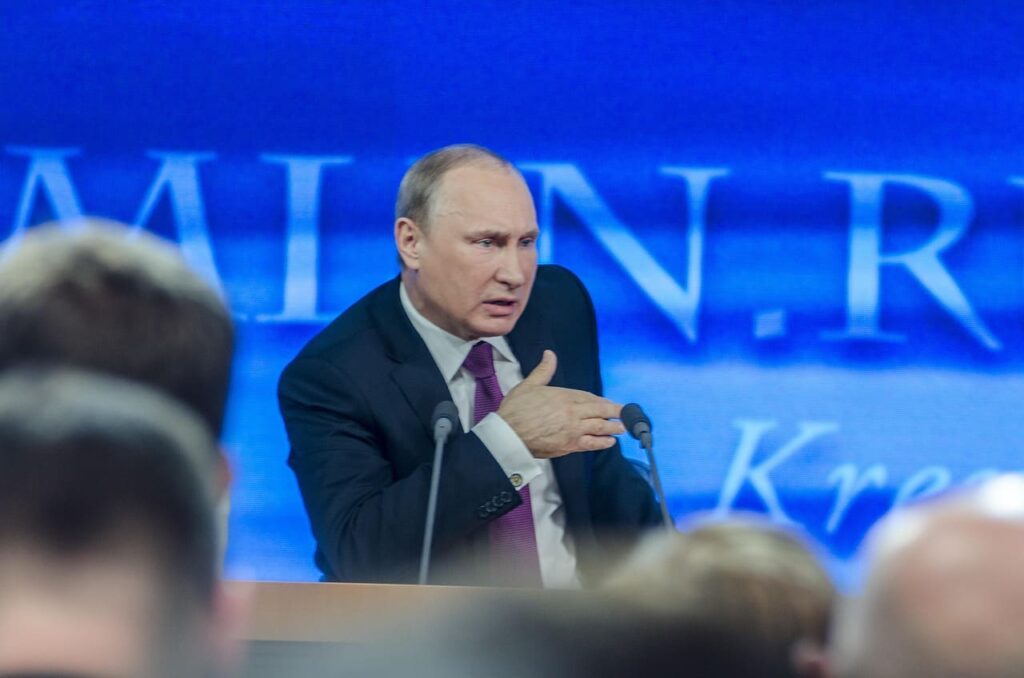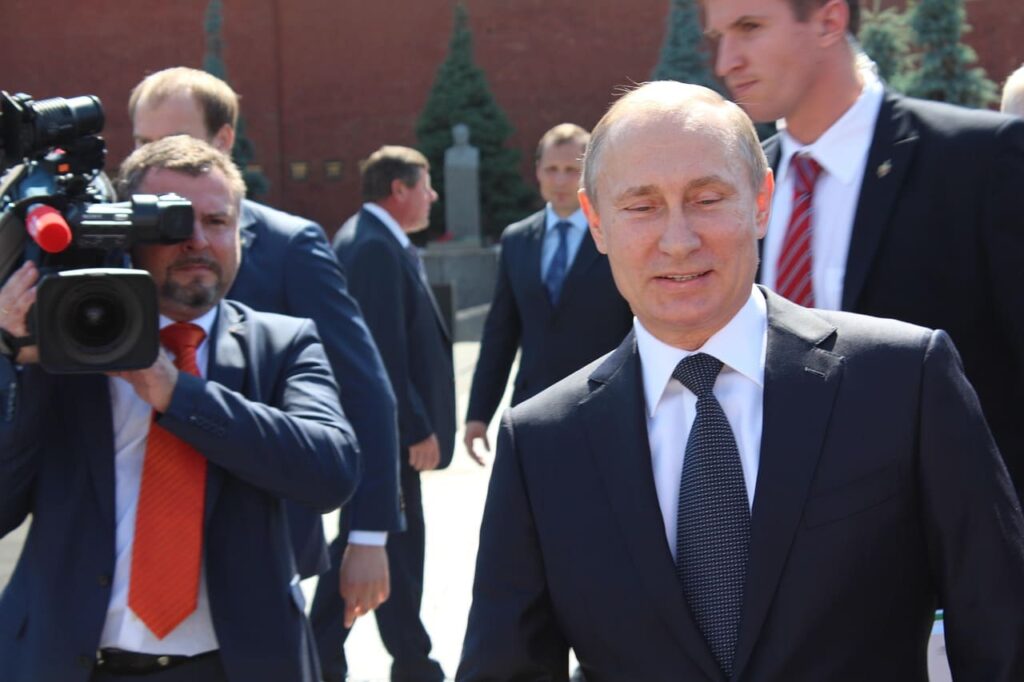Vladimir Vladimirovich Putin is perhaps one of the most powerful and controversial politicians on the planet today. Being the President of Russia, his moves and decisions have not just shaped the fate of his country but also influenced international geopolitics in various ways. His long time on the stage in Russian politics, his background as a former spy, and his assertive style of leadership have all served to make him a larger-than-life figure who is both adored and reviled. But who, exactly, is Vladimir Putin? What is his background, and how did he rise to such dominance?
This article explores the life, career, and legacy of Vladimir Putin in an attempt to build a more complete picture of the man behind the headlines.
Early Life and Education
Vladimir Putin was born on October 7, 1952, in Leningrad (now Saint Petersburg), Russia. He was from a modest family; his father was a World War II veteran and a factory foreman, and his mother worked at home as a homemaker. The post-war Soviet life was hard with shortages and reconstruction prevailing in the atmosphere. Putin’s upbringing was shaped by the circumstances of this environment, but he was determined and disciplined from his early years.
Putin was also an enthusiast of sports, especially martial arts. He trained intensely in sambo and judo, Russian wrestling and combat sports, and continues to practice and endorse them as part of his public image. This interest in martial arts is not only indicative of Putin’s discipline but also his emphasis on strength and resilience traits that he would later reimagine as part of his political image.
After high school, Putin went to Leningrad State University to study law. He graduated in 1975 with a thesis on international law something which would foreshadow his future career with diplomacy and espionage. His university years coincided with the Cold War era, an era of increased political rivalry between the Soviet Union and the West.
Career in the KGB
Soon after graduation, Putin joined the KGB, the Soviet Union’s premier security and intelligence agency. During nearly two decades, he served as an intelligence officer. He was trained in spy tradecraft, counterintelligence, and clandestine operations, serving for a number of years in East Germany during the 1980s.
Putin’s KGB training gave him keen insight into state security, political maneuvering, and government machinery. The collapse of the Soviet Union in 1991 had a profound effect on the politics of the era, and Putin had to realign his career path with the new reality. Putin quit the KGB sometime around this period and started making a shift into politics and administration in Saint Petersburg.
Transition to Politics and Rise to Power
In the early 1990s, Putin worked in various administrative roles in the local Saint Petersburg administration, quickly establishing himself as a proficient and professional bureaucrat. In 1996, Putin went to Moscow, where he became a member of the presidential administration of Boris Yeltsin.
Putin’s breakthrough occurred in 1999 when Yeltsin appointed him as Russia’s Prime Minister. Later in the same year, Yeltsin surprisingly resigned, elevating Putin to Acting President. In 2000, Putin was officially elected as Russia’s President for his first term.
Putin’s rise to power was unparalleled in its speed and the assurance he gained among Russia’s political elite. The majority of observers share the view that Yeltsin chose Putin because he was seen as a strong, stable hand who could restore stability after a decade of post-Soviet instability, economic crisis, and political upheaval.
Putin’s Leadership Style and Domestic Policies
Vladimir Putin’s rule is often characterized as authoritarian, centralized, and pragmatic. He has relentlessly concentrated power, limiting political opposition and tightening control over the media and civil society. His approach emphasizes stability, national pride, and the reassertion of Russia on the global stage.
Locally, Putin encountered a nation amid economic crisis, high crime levels, and political disintegration. He initially focused on economic reform around the enormous natural endowments of Russia, specifically oil and gas. These endowments helped usher in an age of economic growth and growing revenues to the government.

Putin also aimed at reasserting state authority. That meant subordinating the oligarchs wealthy entrepreneurs who accumulated vast fortunes in the 1990s to more state control. Critics accuse Putin’s policies of suffocating political competition and liberty, while his supporters credit him with imposing order and rebuilding Russian pride.
Among the most important parts of Putin’s domestic agenda has been a restoration of Russian nationalism and Orthodox Christianity. He has promoted conservative values and has positioned Russia as a distinct civilization, most often casting it in oppositional language against Western liberalism.
Foreign Policy and Geopolitical Impact
Globally, Putin has been a forceful and unyielding leader. Under his stewardship, Russia has sought to re-establish itself as a super world power. His foreign policy is one of attempts to consolidate Russia’s role in its near abroad the countries that were once part of the Soviet Union and to challenge Western hegemony.
One of the most defining points of Putin’s foreign policy was in 2014 when Crimea was annexed from Ukraine which led to sweeping global condemnation and sanctions against Russia. The move was seen as a dramatic assertion of Russian power but strained relations with the West even further and added fuel to the conflict in Eastern Ukraine.
Putin has also supported the Syrian regime during the Syrian Civil War, shifting the balance of power in the Middle East. Russia under Putin has also been charged by Western powers with foreign election interference, cyberattacks, and other forms of hybrid warfare.
Controversies and Criticism
While he remains well-liked by the majority of Russians, Vladimir Putin is a very polarizing global leader. He has been attacked as being authoritarian, for human rights abuses, for stifling political opposition, and for attacking democratic institutions. Investigations and corruption charges have also followed Putin and his intimate associates.
Press freedom in Russia has significantly fallen under Putin’s rule, with independent journalists often facing intimidation. Government opponents have been harassed, jailed, or driven into exile, as most recently in the case of opposition politician and anti-corruption blogger Alexei Navalny.
Putin’s governing style has grave implications for the health of democracy in Russia, and many analysts have described it as a “managed democracy” or even a de facto dictatorship.
Personal Life and Public Image
Vladimir Putin has a ruthlessly cultivated public persona. He is famous for projecting himself as a strong, resolute leader with a virile, masculine profile. He is frequently broadcast on television indulging in physically strenuous pursuits such as horse riding, fishing, and martial arts.
Putin was married for years to Lyudmila Shkrebneva and has two daughters with her. But the couple divorced in 2013. Little is widely known about his domestic life, as he keeps his personal life private.
His image of being a hard man stands in contrast to the more low-key approach of most Western politicians, which is part of the aura of power and mastery around him.
A Complex Legacy
Vladimir Putin is a paradoxical figure. He rose from a humble start in the ranks of Soviet spymasters to become Russia’s dominant leader in modern times. His leadership restored Russia’s presence on the global stage and won a level of stability and economic growth after the devastation of the 1990s. It has, however, been done at the cost of political liberties and intensified tensions with much of the world.
Knowing Vladimir Putin is important for anyone who has an interest in modern international relations, Russian politics, or the evolving balance of global power. Whether viewed as a guardian of Russian independence or as a menace to democratic principles, his role in shaping the 21st century will be debated and analyzed for decades to come.
Read Our Recent News
Google Faces $314 Million Fine for Unauthorized Collection of Android User Data
China Urges Nepal to Lower Upper Mustang Entry Fee to Boost Tourism
